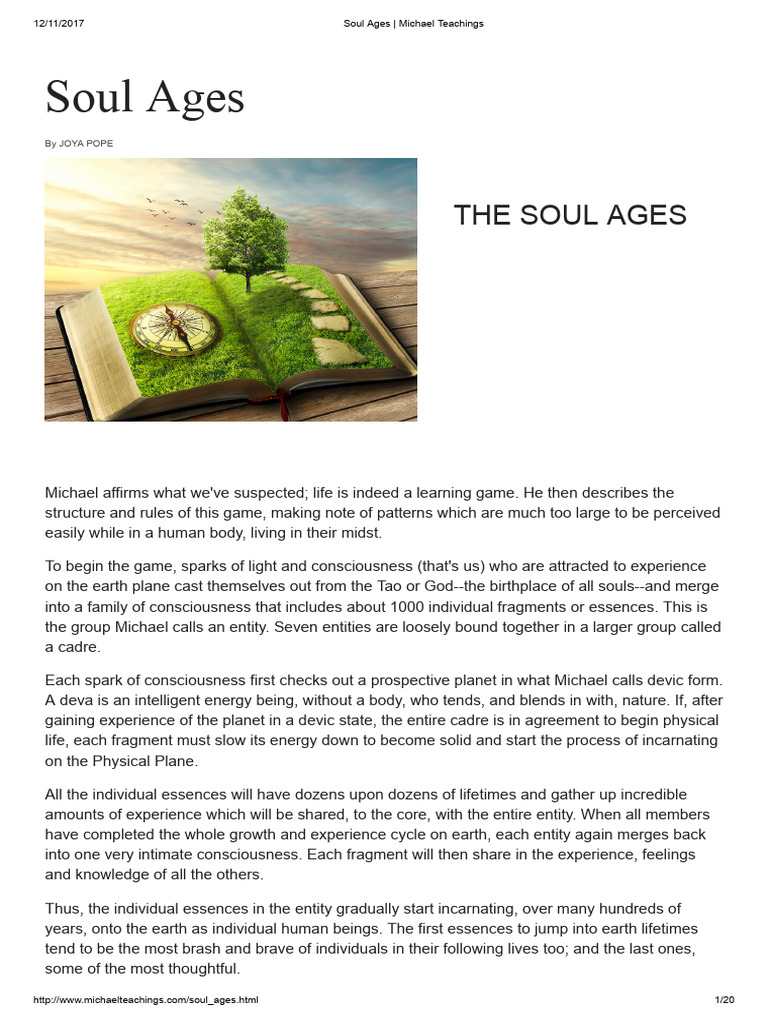The concept of the soul is a profound and intricate notion that resonates across various cultures and religious doctrines. In the context of the Bahá’í Faith, the teachings pertaining to the soul encapsulate a rich tapestry of philosophical insights and spiritual understandings that promise not only enlightenment but also a transformative shift in perspective regarding our existence and purpose. This article endeavors to elucidate the nuanced interpretations of the soul as presented in Bahá’í teachings, tracing its significance across different epochs and providing a comprehensive analysis that piques curiosity and challenges the reader’s comprehension of their own life journey.
To commence this exploration, one must comprehend that the Bahá’í Faith portrays the soul as an eternal essence, distinct from the physical body. This separation posits that the soul is not merely a byproduct of biological processes, but rather an innate reality bestowed upon each individual. The soul’s journey begins at birth and continues throughout the material world, undergoing a series of transformative experiences that shape its development. This leads to the core understanding that life is not an isolated event, but rather a continuum encompassing multiple lifetimes, where each experience contributes to the evolution of the soul.
In Bahá’í teachings, the notion of the soul is intricately linked to the premise of the universe as a dynamic and interconnected system. The teachings advocate for an understanding that all souls are part of an expansive divine creation. This interconnectedness signifies that every individual’s development is influenced by their environment, societal structures, and interpersonal relationships, highlighting the importance of collective progress in the spiritual realm. Thus, the soul, while personal and unique, is also a communal entity, reflecting the collective consciousness of humanity.
Throughout the ages, various spiritual traditions have offered diverse interpretations of the soul, reflecting cultural nuances and belief systems. For instance, in ancient philosophies, the soul was often depicted as a dual entity, encompassing both an earthly component and a higher, divine aspect. In contrast, Bahá’í teachings consolidate these perspectives, asserting that while the soul engages with the material world, its essence is inherently spiritual and transcendent. This amalgamation invites individuals to not only appreciate the physical attributes of existence but also to grasp the spiritual undercurrents that permeate life.
Delving deeper into the Bahá’í perspective, one can discern that the soul’s evolution is fundamentally linked to the attainment of knowledge and virtue. The teachings articulate that each soul is inherently endowed with the potential for growth, contingent upon one’s willingness to cultivate virtues and engage in meaningful pursuits. The deliberate enhancement of the soul manifests through acts of service, love, and unity; these foundational principles underscore the transformative process that characterizes spiritual maturity. As souls engage with the world around them, they awaken their latent capacities, revealing an innate propensity for compassion, wisdom, and resilience.
The Bahá’í Faith posits that the afterlife represents a crucial dimension of the soul’s existence. This belief diverges from a purely linear understanding of life and death, suggesting instead that the soul’s journey continues beyond physical demise. The state of the soul post-mortem is perceived as a reflection of the individual’s earthly choices, where the spiritual progress achieved during life dictates the experiences of the afterlife. This perspective instills a sense of accountability and purpose, advocating for a conscientious approach to one’s actions and moral decisions.
Moreover, the doctrine of the soul within Bahá’í teachings encourages a reevaluation of the human experience in light of its spiritual implications. It urges adherents to transcend the ephemeral concerns of material existence, fostering a paradigm shift towards the eternal truths that define the soul’s purpose. This transformative vision can engender a profound impact on individuals, prompting them to seek deeper meanings in their daily lives and interactions. By centering one’s existence around the upliftment of the soul, one can cultivate a sense of peace and fulfillment that transcends the trials of the temporal world.
In contemplating the implications of the ever-evolving understanding of the soul, it becomes evident that the teachings invite a reflection on the principles of unity and justice. The Bahá’í Faith espouses a holistic approach to spirituality, promoting the idea that the journey of the soul is inextricably linked to the well-being of humanity. This interconnected approach challenges individuals to not only seek personal enlightenment but also to strive for the collective progression of society. In this context, the elevation of one’s own soul becomes synonymous with the uplifting of others, fostering a global community rooted in compassion and mutual respect.
As we navigate the complexities of our existence, the Bahá’í teachings remind us of the significance of our soul’s journey, encouraging a deep inquiry into our spiritual essence. The exploration of the soul across the ages illustrates a continuity of thought and belief that transcends temporal boundaries, positing that the quest for understanding is both a personal odyssey and a collective endeavor. This synthesis of individuality and community encapsulates the heart of the Bahá’í Teachings—encouraging an awakened consciousness that recognizes our shared humanity and interdependence as foundational to the advancement of civilization. Through this lens, the meaning of the soul becomes a catalyst for personal growth, societal transformation, and ultimately, the realization of a harmonious world.
In conclusion, the profound essence of the soul, as delineated in Bahá’í teachings, presents an opportunity for transformative introspection. It invites individuals to embrace the ephemeral nature of their material existence while simultaneously aligning with the eternal truths that govern the spiritual realm. As one embarks on this journey of self-discovery, the understanding of the soul’s significance will not only illuminate one’s path but will also serve as a guiding light for humanity’s collective evolution.
